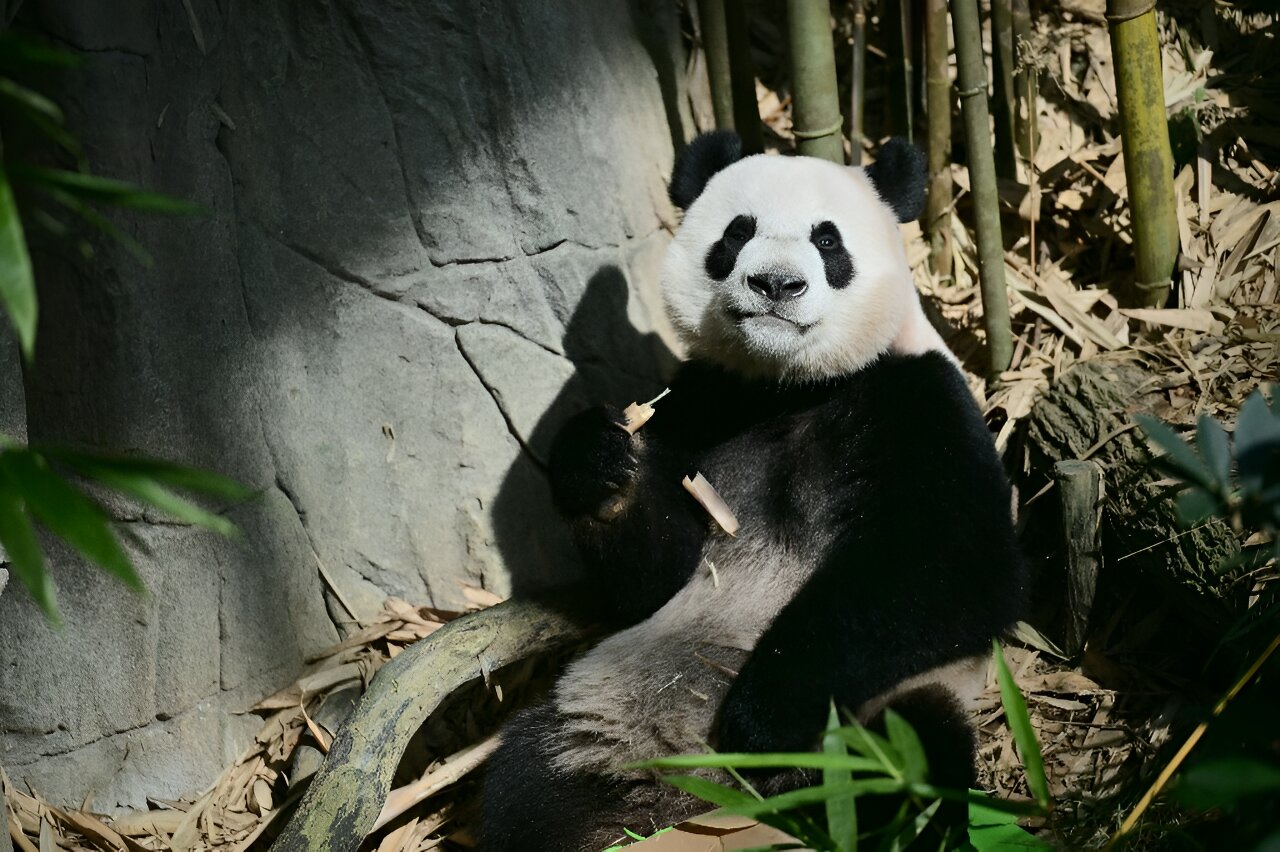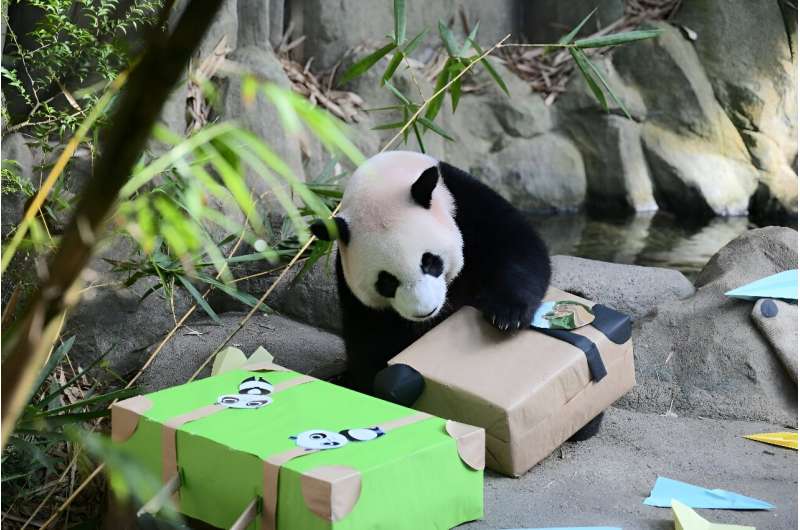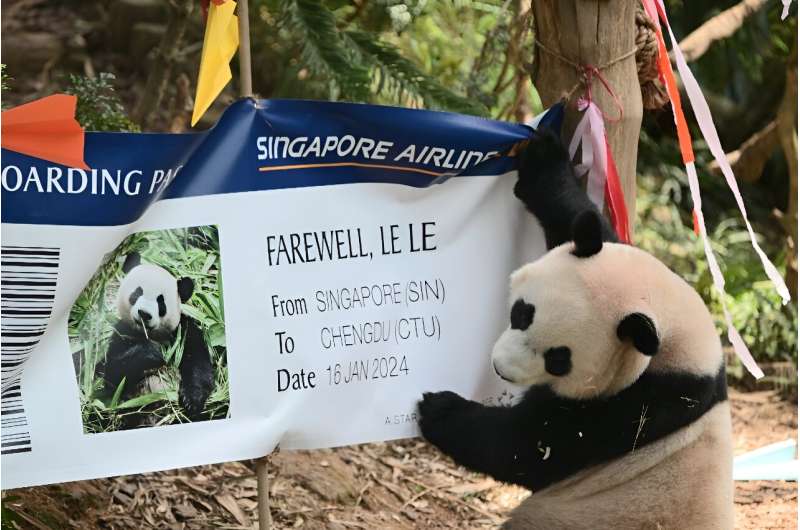

Singaporeans bid farewell to a two-year-old panda cub on Wednesday as authorities prepared to send him to China where he will join the country’s breeding program.
Le Le, the first panda to be born in the city-state, made his final public appearance at the River Wonders wildlife park before a month-long quarantine ahead of his departure.
Dozens of visitors lined up to see Le Le amble around his enclosure, eating bamboo and carrot sticks that keepers had hidden under paper planes and inside cardboard suitcases.
Among them was Lucilla Teoh, a self-described “panda-holic”, who wore a t-shirt and hat decorated with panda motifs and sparkly panda earrings for the special occasion.
The 61-year-old told AFP she considers herself Le Le’s “grand-aunty” as she had watched him grow from a tiny baby into a 73-kilogram (161-pound) cub.
“Obviously it’s bittersweet, I wish he could stay longer,” Teoh said.
“But I also feel he has a part to play in panda conservation, that it is important for him to go back to China, grow up a bit, and then hopefully he gets to be a panda ambassador and come out like his parents.”
Lydia Robangsa, who brought her nine-year-old daughter Dahlia to see Le Le for the last time, said they felt “a bit sad” to say goodbye to the panda.

“I think Singapore is his home,” the 40-year-old marketing executive said.
Le Le was born in 2021 via artificial insemination after his parents, Jia Jia and Kai Kai, failed to mate naturally.
The pair, now aged 15 and 16 respectively, arrived in Singapore in 2012 on loan from China.
Under the arrangement, their offspring were to be sent to China after reaching independence to join the country’s panda breeding program.
Panda reproduction—in captivity or in the wild—is notoriously difficult, experts say, as few of the animals get in the mood or, even when they do, do not know how to mate.
Further complicating matters, the window for conception is small since female pandas are in heat only once a year, for about 24-48 hours.
Le Le is scheduled to travel to Chengdu on January 16 in a custom-made crate on board a Singapore Airlines Boeing 747-400F freighter plane.

China has long deployed “panda diplomacy”, lending the black and white animals to various countries, often to further its foreign policy aims.
There are an estimated 1,860 giant pandas left in the wild, according to environmental group WWF, and about 600 in captivity in panda centers, zoos and wildlife parks worldwide.
© 2023 AFP
Citation:
Singapore bids farewell to China-bound panda cub (2023, December 13)
retrieved 13 December 2023
from https://phys.org/news/2023-12-singapore-farewell-china-bound-panda-cub.html
This document is subject to copyright. Apart from any fair dealing for the purpose of private study or research, no
part may be reproduced without the written permission. The content is provided for information purposes only.


